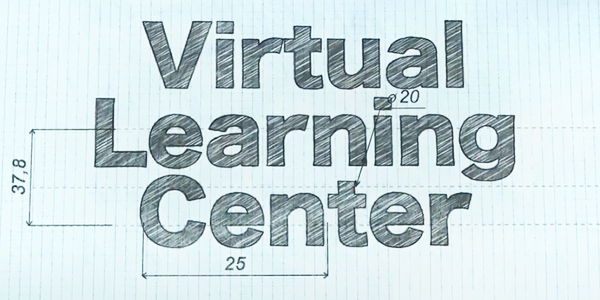We provide supplemental, energy-related and age-appropriate STEM programs for students in Grades 3-12. Our programs promote curiosity, increase students’ confidence and help to enhance educational equity by improving STEM competency outside a traditional classroom setting.
STEM Education
The Electricity Basics Program is an introductory course where students work collaboratively on experiments that provide a baseline understanding of how electricity is generated and transported.
- What is electricity?
- Electric generation and transmission
- What is renewable energy?
- Battery storage and its impact on a renewable energy future
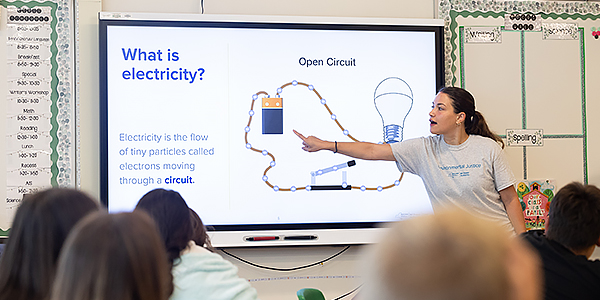
The Renewable Energy 101 Program explores the environmental impacts of renewable vs. non-renewable energy. Students will compare various energy resources including fossil fuels, hydropower, wind energy, solar energy and geo-thermal energy in a series of fun exercises.
Students work collaboratively to design and build solar ovens and wind turbines. This activity also provides an introduction to data collection, analysis and engineering optimization.
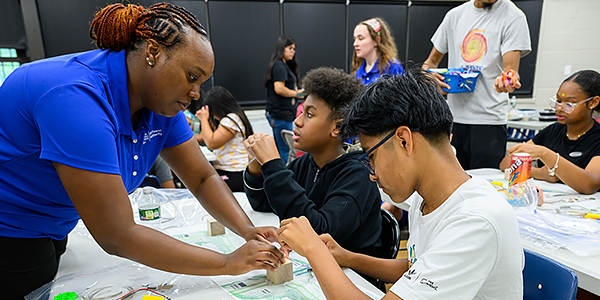
The Electric Vehicles Program introduces EV technology to students through hands on learning.
It is designed to teach students the basics of electric vehicle transportation and the beneficial impacts of this technology on the environment. As part of this program, students build their own EV models and/or design an EV charging station.
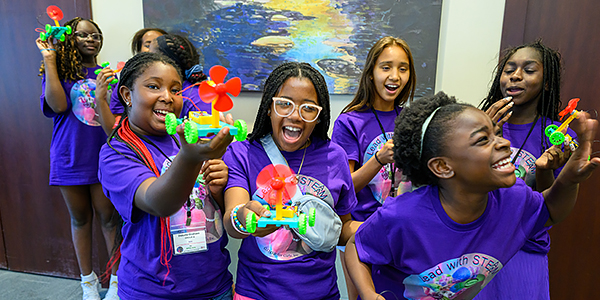
Our EV Donation Program utilizes retired hybrid and fully electric vehicles from NYPA’s car fleet and donates them to high schools in EJ communities with automotive technology programs. The vehicles are used exclusively as training tools for future EV technicians. Additional equipment and curriculum are also provided as NYPA seeks to promote career readiness for jobs in this fast-growing industry.
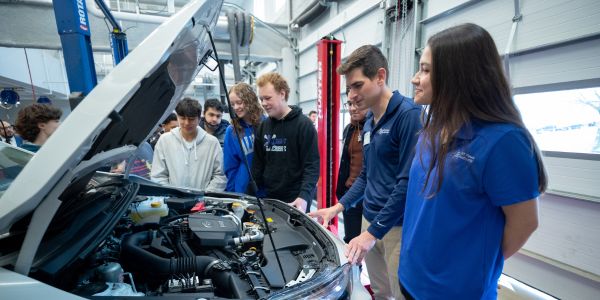
Our Environmental Stewardship Program teaches students about water quality issues and how to become a clean water advocate in their community.
Through hands-on activities, students will:
- Learn how pollutants can enter waterways and the difficulties of restoring waterways and clean drinking water
- Have the opportunity test a nearby waterway for contaminants and chemicals
- Critically assess their own water use
- Develop a water conservation campaign for their home and school
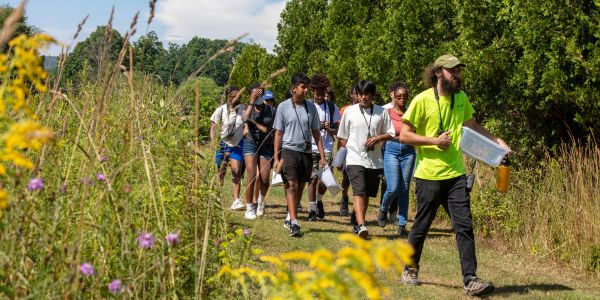
Across New York City, NYPA is helping to convert unused classrooms and rooftops into lush gardens that yield healthy, organic vegetables and herbs. In the Green Classrooms Program, students plant and harvest what they grow and gain knowledge about the health benefits of organic food, water technology, sustainable agriculture, hydroponic systems and the effects of climate change on food production.
In collaboration with New York Sun Works, we’ve provided funding to build and support 18 Green Classrooms and two green community laboratories in New York City – with more to come. We also provide energy-related STEM education to schools participating in this program.
The Green Classrooms Program is only available to New York City public schools located near NYPA’s facilities.
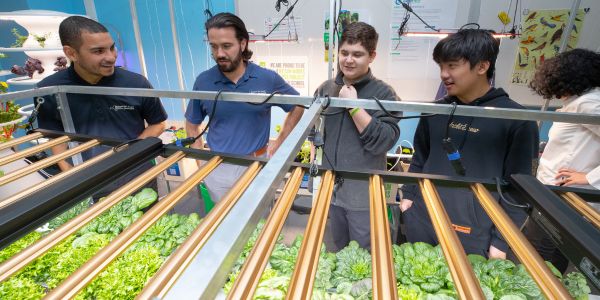
With our partner, the Alliance to Save Energy, we sponsor the EmPowered Schools program to teach students the fundamentals of energy. We also provide the tools that students can use to increase the efficiency of schools, homes and communities. Students will develop and manage an energy efficiency awareness campaign in their school. Exposure to green career opportunities is another component of the program.
The benefits of the EmPowered Schools program extend beyond the classroom. With knowledge gained from the program, students can become effective “energy efficiency ambassadors” within their families, social networks, and neighborhoods. The program assists them in translating the facts of energy efficiency into the values, stories, and campaigns helps which the outreach gap existing in many underserved communities.
The School Energy Audit Competition is only available to public schools located near NYPA’s facilities outside of New York City.
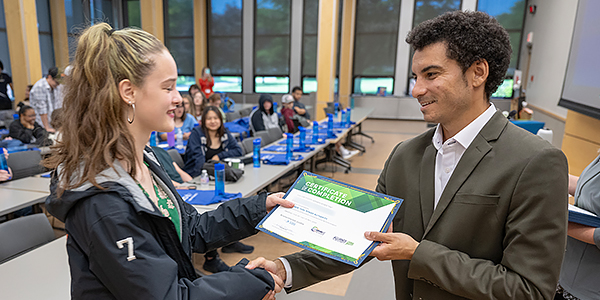
Our College and Career Readiness Workshops are provided virtually and in-person to upper-level high school students, as well as first year community college students, gain an understanding of the many career opportunities available to them in the electric utility industry.
We sponsor panels with NYPA professionals who share their stories and offer practical advice to help students succeed.
Available workshops:
- Speed mentoring
- How to write an effective resume
- Improving interview skills
- The fundamentals of financial literary
- Using social media to identify and apply for jobs
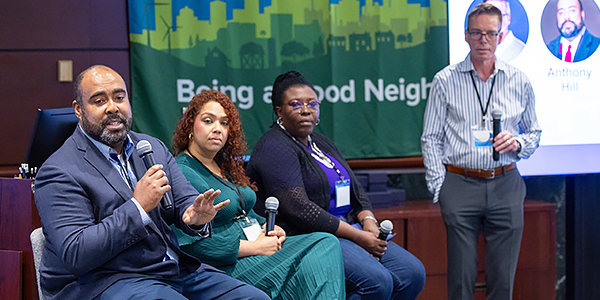
P-TECH provides a rigorous, relevant, and cost-free six-year education (Grades 9-14) focused on the knowledge and skills students need for STEM careers.
As an industry partner, we provide P-TECH students with workplace experiential learning through mentorships, career readiness workshops, paid internships and more.
Interns work collaboratively and learn how to apply engineering concepts and methodology to solve real-world energy industry challenges.
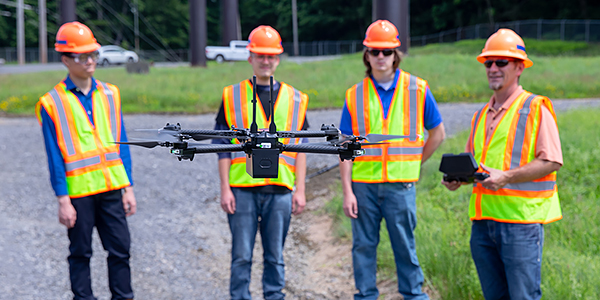
The objective of the Future Energy Leaders Scholarship Program is to increase diversity in the clean energy industry. We provide a one-time scholarship award to academically accomplished and underrepresented high school seniors enrolled in a four-year college for the semester following graduation.
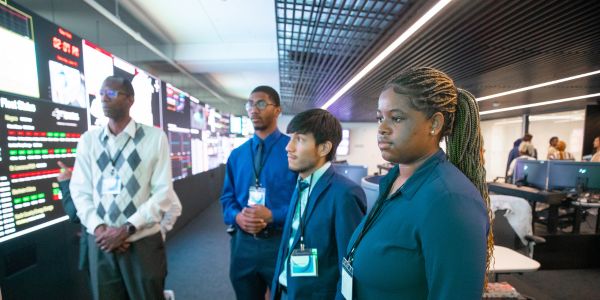
We are taking STEM learning on the road! The Energy XPlorer, NYPA’s mobile energy classroom, is bringing the experience of energy and environmental science directly to schools in a new and fun way. Our educators put students “in the driver’s seat” as they compete to design a new clean energy system for a city in the future.
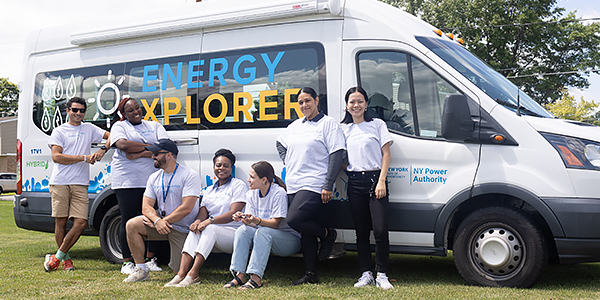
The Virtual Learning Center is an easily accessible online resource for fun and engaging energy activities that are designed for all age groups.
The Center also hosts a comprehensive Energy Curriculum Toolbox for elementary, middle and high school educators. Teachers can download energy curriculum learning modules that include PowerPoint Presentations, teacher guides and experiments for use online or in a classroom setting.
